Are you in the market for a new plastic extruder machine for your industrial needs? Choosing the right machine can be a daunting task considering the wide range of options available. But fret not, because this ultimate guide is here to help you make an informed decision.
In this comprehensive guide, we will walk you through everything you need to know about selecting the perfect plastic extruder machine. Whether you are a seasoned professional or just starting out, we will cover the key factors to consider, such as production requirements, machine specifications, material compatibility, and budget constraints.
Our aim is to empower you with the knowledge and tools to choose a machine that not only meets your current needs but also has the potential for future growth. With our expert advice and industry insights, you’ll be able to maximize your production efficiency and achieve superior product quality.
So, if you’re ready to take your plastic extrusion process to the next level, sit back, relax, and let’s dive into the ultimate guide to choosing the right plastic extruder machine for your industrial needs.
Different types of plastic extruder machines
When it comes to plastic extrusion, there are several types of machines designed to cater to various manufacturing needs. Understanding the different types of plastic extruder machines can significantly impact your decision-making process. The most common types include single-screw extruders, twin-screw extruders, and ram extruders. Each type has its unique advantages and applications, making them suitable for different production requirements.
Single-screw extruders are the most widely used in the industry. They consist of a single rotating screw that moves the plastic material through a heated barrel, where it is melted and formed into a continuous profile. These machines are known for their simplicity, ease of operation, and cost-effectiveness. They are ideal for producing a wide range of products, including sheets, films, and pipes, making them a versatile choice for many manufacturers.
On the other hand, twin-screw extruders feature two intermeshing screws that rotate in the same or opposite direction. This design allows for more efficient mixing and compounding of materials, making them suitable for applications that require a high degree of material processing. Twin-screw extruders are particularly beneficial for producing complex formulations, including specialty plastics and filled compounds, where uniformity and consistency are paramount.
Factors to consider when choosing a plastic extruder machine
Choosing the right plastic extruder machine involves considering a variety of factors that can influence your production efficiency and product quality. One of the primary considerations is the type of materials you will be processing. Different machines are designed to handle specific types of plastics, and understanding the compatibility of your materials with the machine is crucial for optimal performance. This includes factors like thermal stability, viscosity, and filler content of the plastics you intend to use.
Another important factor to consider is the production capacity of the machine. Depending on your manufacturing needs, you may require a machine that can handle high volumes of production or one that is more specialized for smaller batches. It’s essential to assess your current and future production requirements, as investing in a machine that cannot meet your demands can lead to inefficiencies and increased costs. Look for machines that offer flexibility in output rates to accommodate fluctuating production schedules.
Additionally, the level of automation and control technology integrated into the machine should be considered. Advanced extruders come equipped with sophisticated control systems that enable precise monitoring of temperature, pressure, and speed. This level of control can significantly enhance the quality of the final product and reduce waste during production. Investing in automation can also streamline your manufacturing process, leading to improved productivity and reduced labor costs.
Understanding the production requirements
Before purchasing a plastic extruder machine, it is imperative to have a clear understanding of your production requirements. This involves evaluating the types of products you plan to manufacture, the volumes needed, and the specific material properties required for those products. Product specifications will dictate the design and configuration of the extruder, including considerations for die design, cooling systems, and downstream processing equipment.
One of the first steps in understanding your production requirements is to conduct a thorough analysis of your product portfolio. Consider the dimensions, shapes, and thicknesses of the products you will be extruding. This information will guide you in selecting the right machine size and screw design, ensuring that the extruder can produce consistent results. For instance, specialized dies may be necessary for producing complex shapes, which would require a machine capable of accommodating such designs.
Moreover, production volume is a critical factor. If you anticipate high production volumes, investing in a larger machine with greater output capabilities may be beneficial. Conversely, if your operations are more focused on small-batch production or custom runs, a smaller, more versatile machine might be the better choice. Additionally, it’s important to factor in potential growth in production needs over time, as this could influence the type of machine you ultimately decide to purchase.
Budget considerations for purchasing a plastic extruder machine
Budget considerations are undoubtedly one of the most significant aspects of purchasing a plastic extruder machine. The initial investment can vary widely depending on the type, brand, and features of the machine. Therefore, it is crucial to establish a clear budget before starting your search. A well-defined budget will help narrow down your options and prevent overspending on features that may not be necessary for your production needs.
In addition to the purchase price, it’s essential to consider the total cost of ownership, which includes operational costs, maintenance expenses, and potential downtime. For instance, machines with higher energy efficiency or lower maintenance requirements may come with a higher initial price tag but can offer significant savings in the long run. It is also advisable to research the availability and cost of replacement parts, as well as the machine’s overall reliability, to ensure minimal disruptions to your production schedule.
Furthermore, it can be beneficial to explore financing options or leasing arrangements. Many suppliers offer flexible financing plans that allow you to spread the cost of the machine over time, making it more manageable for your budget. Additionally, leasing can be an attractive option for businesses that may not have the capital for a large upfront investment. Evaluating your financial situation and considering various purchasing strategies will help you make a more informed decision that aligns with your business objectives.
Evaluating the quality and reliability of the machine
Quality and reliability are paramount when selecting a plastic extruder machine, as these factors directly impact production efficiency and product quality. When evaluating potential machines, it is essential to consider the materials and construction of the extruder. Machines built with high-quality components, such as hardened steel screws and robust barrels, are more likely to withstand the rigors of continuous operation and provide consistent results.
Another aspect to assess is the machine’s performance track record. Look for machines that have been tested and proven in similar applications. Reading customer reviews and testimonials can provide valuable insights into the machine’s reliability, ease of use, and overall performance. Additionally, inquire about the supplier’s reputation in the industry; a reputable supplier is more likely to offer high-quality machinery and reliable after-sales support.
Finally, consider the warranty and support services offered by the manufacturer. A robust warranty can provide peace of mind, ensuring that you are protected against unexpected repairs or issues. Furthermore, responsive technical support and access to replacement parts are crucial for minimizing downtime and maintaining production continuity. Evaluating these aspects will help you choose a machine that not only meets your operational needs but also offers long-term reliability and support.
Assessing the technical specifications and features
When choosing a plastic extruder machine, it’s vital to assess the technical specifications and features that will impact your production process. Key specifications to consider include the screw diameter and length, which determine the machine’s processing capacity and material throughput. A larger screw diameter typically allows for higher production rates, while the length can influence the degree of mixing and melting of the material.
Temperature control is another critical specification to evaluate. The ability to maintain precise temperature profiles throughout the extruder is essential for achieving optimal processing conditions. Look for machines that offer advanced temperature control features, such as multiple heating zones and built-in thermoregulators. This level of temperature management can greatly improve product consistency and quality, especially when working with materials that require specific thermal profiles.
In addition to these specifications, consider the machine’s automation capabilities. Advanced extruders may come equipped with programmable logic controllers (PLCs) and touch-screen interfaces that allow for easy monitoring and adjustments during operation. Automation features can enhance precision, reduce operator errors, and improve overall efficiency. By evaluating these technical specifications and features, you can ensure that the machine you choose aligns with your production goals and quality standards.
Considering the maintenance and support services
Maintenance and support services are critical components to consider when selecting a plastic extruder machine. Regular maintenance is essential for ensuring the longevity and optimal performance of the machine. Investigate the manufacturer’s recommendations for maintenance schedules and the availability of service technicians. Machines that are easier to service and maintain can help minimize downtime and keep your production running smoothly.
Another vital aspect of maintenance is the availability of spare parts. Ensure that the manufacturer provides easy access to replacement parts and has a robust supply chain in place. Delays in obtaining parts can lead to extended downtime, which can significantly impact your production output and profitability. Understanding the typical lead times for parts and the manufacturer’s commitment to customer service can help you make a more informed decision.
Additionally, consider the training and support services offered by the supplier. A good supplier should provide comprehensive training for your operators to ensure they are well-equipped to use and maintain the machine effectively. Access to technical support can also be invaluable in resolving issues quickly and efficiently. By prioritizing maintenance and support services, you can protect your investment and ensure the long-term success of your plastic extrusion operations.
Comparing different brands and suppliers
When it comes to purchasing a plastic extruder machine, comparing different brands and suppliers is an essential step in the decision-making process. The market is filled with various manufacturers, each offering machines with unique features, specifications, and price points. Conducting a thorough comparison allows you to identify the best options that align with your operational needs and budget constraints.
Start by researching the reputation of different brands within the industry. Look for manufacturers that are known for producing high-quality, reliable machines backed by positive customer feedback. Industry publications, trade shows, and online forums can provide valuable insights into which brands are favored by professionals in your field. Additionally, consider the manufacturer’s experience and expertise in plastic extrusion, as this can indicate their capability to deliver reliable machinery.
Once you have identified potential brands, request quotes and specifications for the machines you are interested in. Compare not only the prices but also the features, warranties, and support services offered by each supplier. Engaging in direct conversations with sales representatives can also provide clarity on any questions or concerns you may have. By carefully comparing different brands and suppliers, you can make a well-informed decision that meets your production requirements and quality expectations.
Conclusion and final thoughts on choosing the right plastic extruder machine
Selecting the right plastic extruder machine is a critical decision that can significantly impact your production capabilities and overall business success. By understanding the different types of machines available, assessing your production requirements, and evaluating budget considerations, you can narrow down your options effectively. Additionally, focusing on the quality and reliability of the machine, along with its technical specifications and maintenance support, will ensure that your investment pays off in the long run.
As you embark on this journey, remember that thorough research and careful comparisons between different brands and suppliers are key to making a well-informed choice. The right machine should not only meet your current needs but also have the flexibility and capacity to grow with your business. By taking the time to analyze all these factors, you can find a plastic extruder machine that enhances your production efficiency, ensures product quality, and positions your business for future success.
In conclusion, the process of choosing a plastic extruder machine may seem overwhelming at first, but with the right knowledge and tools, you can navigate through the options with confidence. This ultimate guide aims to empower you in making an informed decision that aligns with your operational goals and helps you achieve excellence in your plastic extrusion operations.

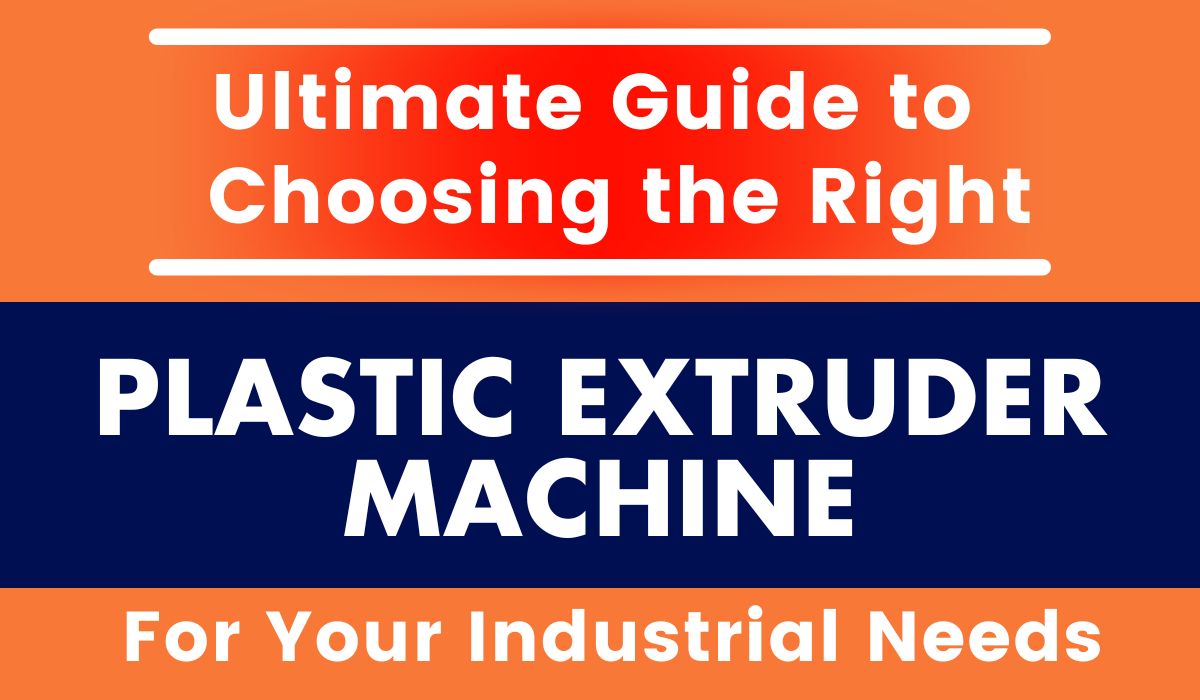
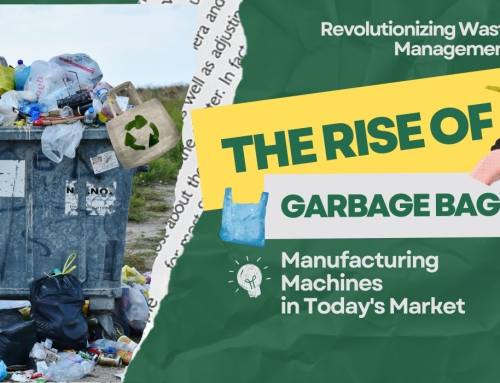

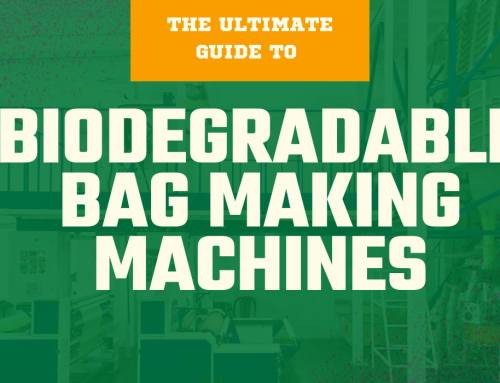
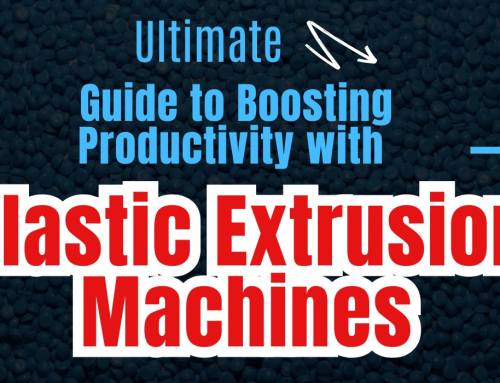
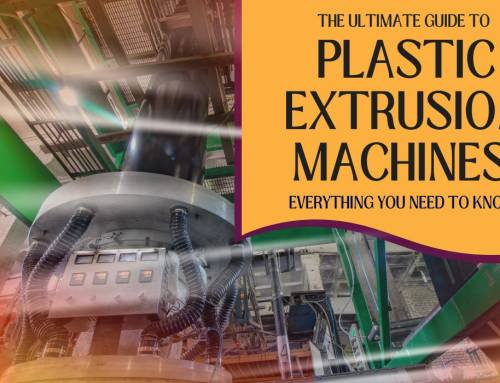

This conclusion feels very reassuring. It simplifies a complex choice and gives confidence that, with proper guidance, selecting the right plastic extruder machine is manageable. The focus on informed decisions and operational success makes the message clear and helpful.